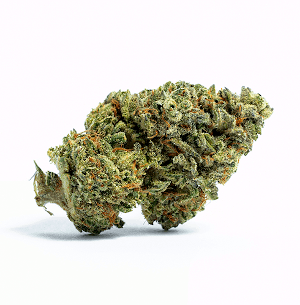Cannabis Law in Ratchaburi, Thailand
Ratchaburi, a province located in central Thailand, is known for its picturesque landscapes and cultural heritage. Like the rest of the country, Ratchaburi has a history with cannabis, but its legal status has evolved significantly over the years. In this article, we will explore the cannabis laws in Ratchaburi, Thailand, focusing on its current state and recent developments.
Historical Perspective:
Cannabis has been cultivated and used for various purposes in Thailand for centuries. Historically, it was used for medicinal, recreational, and industrial purposes. Traditional Thai medicine practitioners have incorporated cannabis as part of their remedies, and it was a common ingredient in certain dishes and drinks. However, as international drug control treaties gained prominence in the mid-20th century, Thailand enacted more stringent laws to control narcotics, including cannabis.
The War on Drugs and Cannabis Prohibition:
In the early 20th century, Thailand introduced various laws restricting cannabis cultivation and consumption. During the 1970s, the United States launched the “War on Drugs,” which had a significant impact on Thai drug policies. Under U.S. pressure, Thailand enforced more severe anti-drug measures, leading to the prohibition of cannabis and its classification as a Schedule 5 narcotic.
Changing Attitudes and Legislative Reforms:
In recent years, there has been a global shift towards more liberal cannabis laws. Thailand has also been part of this change. Public opinion has shifted towards viewing cannabis as a potentially beneficial plant, and the outdated punitive approach to drug control has faced criticism.
Medical Cannabis in Ratchaburi:
In 2018, Thailand took a groundbreaking step by legalizing medical cannabis. This move aimed to leverage the potential of cannabis for medical purposes and promote research in the field. Patients in Ratchaburi now have access to medical cannabis treatments under specific conditions. However, obtaining medical cannabis requires a prescription from a licensed physician, and it must be purchased from authorized dispensaries.
Cultivation and Possession of Cannabis:
While medical cannabis is legal in Ratchaburi, personal cultivation and possession for recreational purposes remain illegal. The possession, sale, and distribution of cannabis without proper authorization can lead to severe penalties, including imprisonment.
Cannabis Tourism and Foreign Visitors:
Foreign visitors to Ratchaburi should be aware of the country’s cannabis laws. Even though some countries have legalized cannabis for recreational use, bringing cannabis into Thailand is strictly prohibited. Tourists found with cannabis in their possession may face serious legal consequences, including imprisonment and deportation.
Industrial Hemp in Ratchaburi:
Apart from medical cannabis, Thailand also allows the cultivation of industrial hemp, which contains negligible amounts of THC (the psychoactive compound in cannabis). Farmers in Ratchaburi can legally grow hemp for various industrial purposes, such as textiles, paper, and building materials. This move aims to support local industries and create economic opportunities while differentiating industrial hemp from recreational cannabis.
Future Outlook:
The landscape of cannabis laws in Ratchaburi and Thailand, in general, is evolving. As more research is conducted on the medical benefits of cannabis and public sentiment continues to change, there may be further reforms in the future. The government is closely monitoring the effects of medical cannabis legalization and industrial hemp cultivation to determine the potential for further changes in legislation.
Conclusion:
Cannabis law in Ratchaburi, Thailand, has seen significant changes in its cannabis laws. While medical cannabis is legal for specific conditions, recreational use remains prohibited. Industrial hemp cultivation is permitted, providing economic opportunities for the region. However, it is essential for both residents and tourists to familiarize themselves with the current cannabis laws in Ratchaburi to avoid any legal issues. As attitudes towards cannabis continue to evolve, it will be interesting to observe how Thai lawmakers respond in the future, potentially shaping a more progressive cannabis policy for the province and the country.



